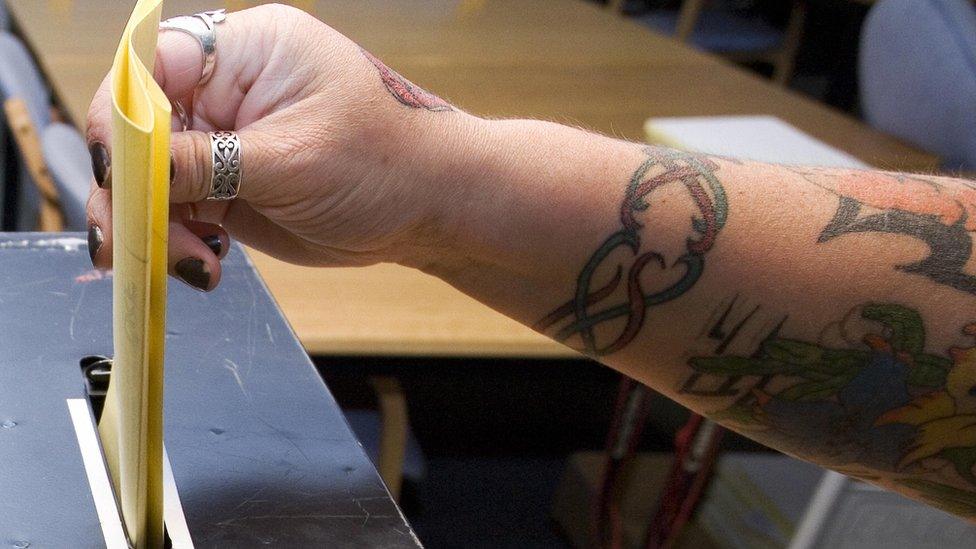Tactical voting: The early signs it could really take off in 2017
- Published
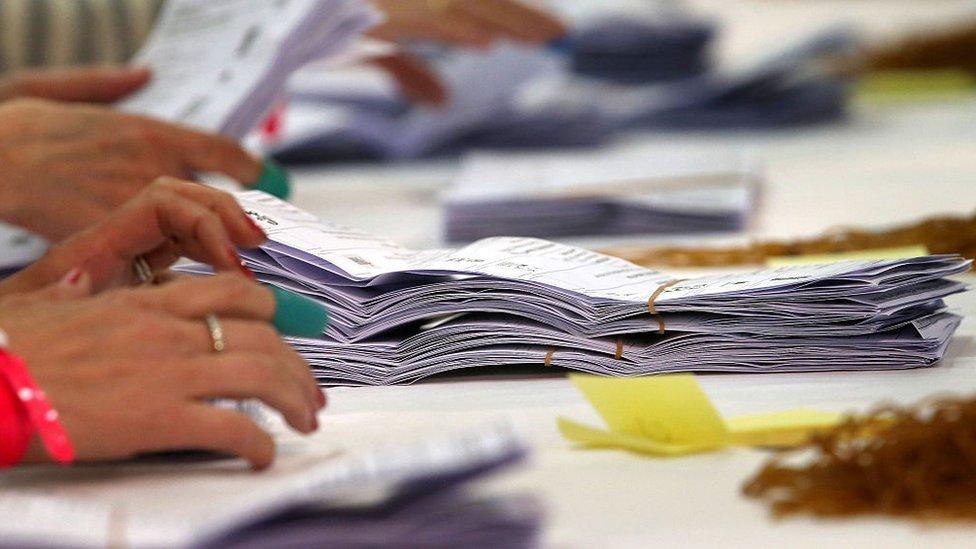
Britain's first-past-the-post electoral system means that lots of MPs are elected on fewer than half of the votes cast in their constituencies.
At the last election, 333 out of 650 winning candidates received less than 50% of the vote.
Those MPs could have been defeated if all the people who voted against them had gone for the same alternative candidate.
Clearly, that would never happen everywhere. But parties who agree on some of the main issues potentially have a lot to gain if they can co-ordinate their supporters.
One option is to encourage tactical voting. A more direct approach is to enter some sort of alliance or pact which sees parties choosing not to put forward candidates in certain seats.
Even without an agreement, parties can try to affect the result simply by choosing not to contest some constituencies.
It looks as though there's going to be considerably more co-ordination of this kind in 2017 than we've seen at previous elections.
As a strategy, though, it does rely on voters being prepared to vote for a candidate from a party which would not have been their first choice.
It has happened before
One part of the country where electoral deals have been used before is Northern Ireland.
In 2015, the Democratic Unionist Party (DUP) and Ulster Unionist Party (UUP) agreed a pact not to stand against each other in four constituencies: Belfast North, Belfast East, Fermanagh & South Tyrone, and Newry & Armagh.
The deal was pretty successful. The unionist candidate won in three of the four seats. And the Sinn Fein majority was halved in Newry & Armagh.
This year, the deal looks as though it may be extended. The UUP have already said they won't run in three seats and the two parties are having discussions about a new pact.
And for the first time, the SDLP say they're prepared to co-operate with Sinn Fein as part of a wider deal between anti-Brexit parties that could also involve the Greens and the Alliance Party.
The outcome of negotiations could have a significant impact in quite a few constituencies.
The impact of Brexit
In the rest of the UK, this kind of deal has been very rare in recent years but it looks as though there will be more co-operation between parties this time.
One reason is Brexit. It's a crucial issue for all of the parties and, significantly, an issue which cut across parties but cleanly divided voters into two camps.
UKIP leader Paul Nuttall has said he will put "country before party" by not standing candidates in some Conservative/Labour marginals where there is a strongly pro-Brexit MP or where a pro-Brexit candidate has a chance of ousting a pro-Remain MP.
On the other side of the debate, former Prime Minister Tony Blair has also said that he was prepared to "work with anyone" to stop candidates who back "Brexit at any cost" although he didn't suggest a formal electoral pact.
Sorry, your browser cannot display this content.
Progressive alliances
Brexit isn't the only issue. The Green Party is seeking support for what they call a "progressive alliance". Co-leaders Caroline Lucas and Jonathan Bartley have written to Labour and the Liberal Democrats calling for a meeting "to discuss ways to beat the Tories at the general election and deliver a fairer voting system".
Some of their local parties have suggested deals with Labour and Liberal Democrat rivals. For example, Greens have said they would stand aside in Plymouth Sutton & Devonport if Labour returned the favour in Totnes.
Liberal Democrats in Brighton are considering standing aside in the Greens' only seat - Brighton Pavilion. Former Lib Dem MP, Sir Vince Cable, who is seeking re-election tweeted his support for the idea.
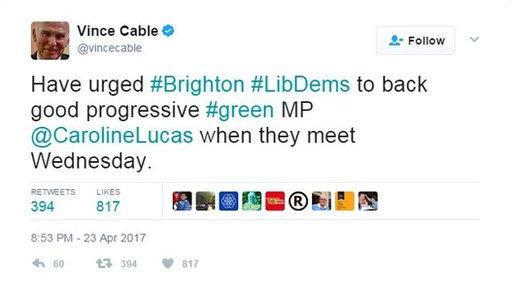
The Greens have also unilaterally decided not to contest Labour-held Ealing Central & Acton, just as they did at the Richmond Park by-election in December where the Lib Dems overturned Zac Goldsmith's 23,000 majority.
And there are reports of several other possible deals and arrangements around the country.
Will it work?
All of this negotiating will only be worth it if voters are prepared to back a party that isn't their first choice. There can be no guarantee that the Green voters will agree to switch en masse to the Labour candidate if the Greens stand aside.
The evidence from Northern Ireland is that pacts can work. But in that case they're based on a long-established division between unionist and nationalist voters. In the rest of the country it's harder to split the parties into two blocs so neatly.
However, voters do not identify as strongly with individual parties as they did in the past so there is probably more scope than previously for switching between parties.
And Brexit may well give voters a reason to vote for a candidate from a party that they wouldn't previously have considered.
- Published1 June 2017
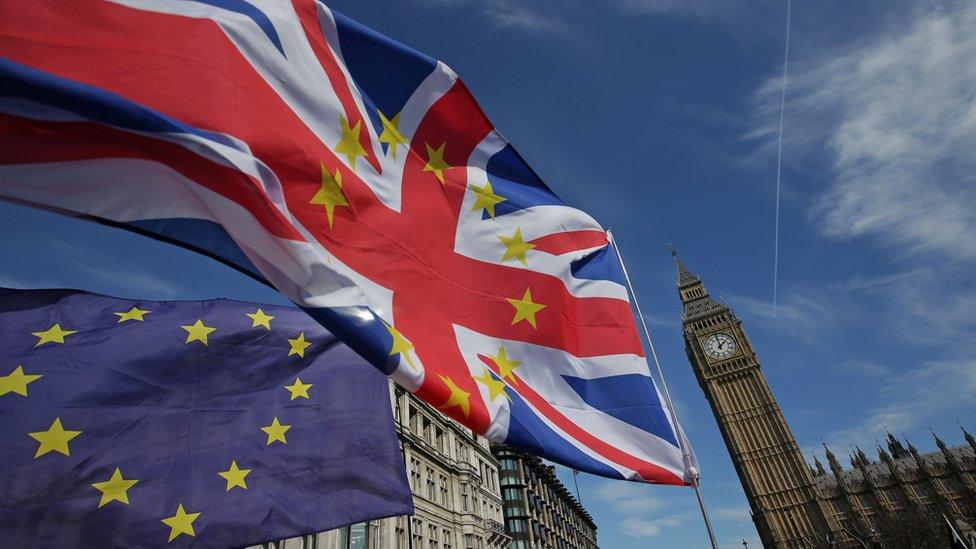
- Published24 April 2017
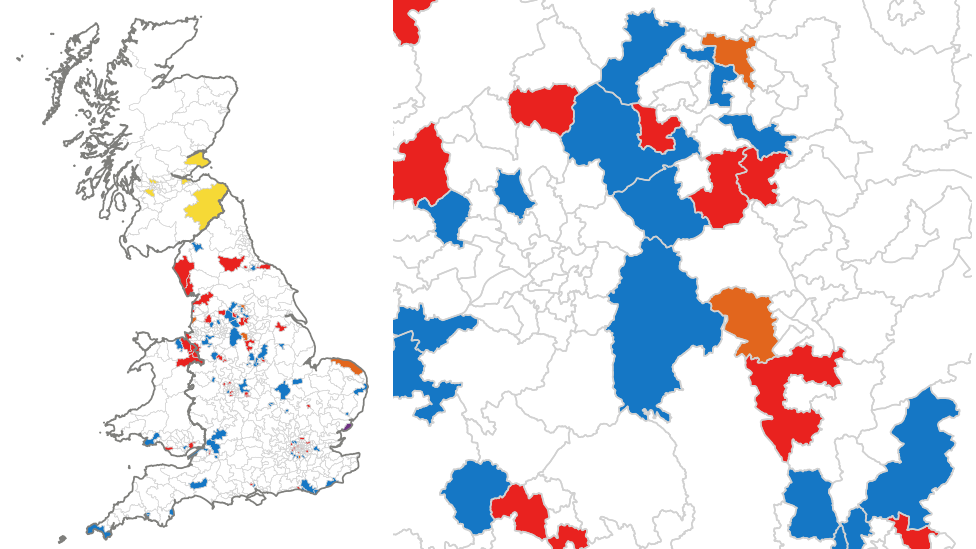
- Published2 June 2017
